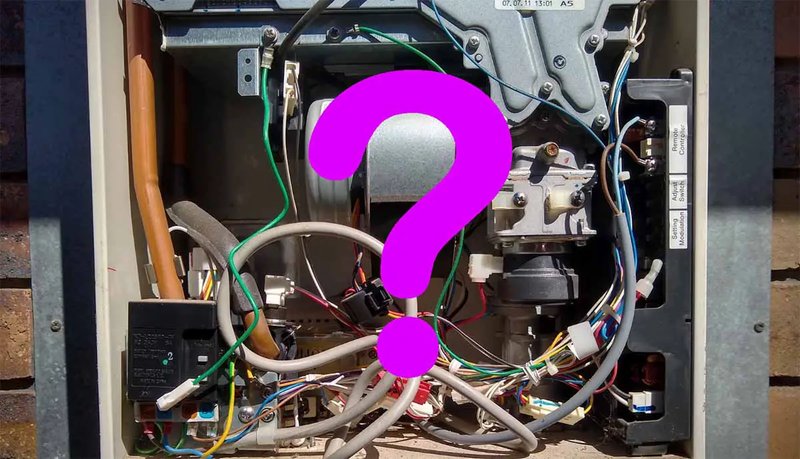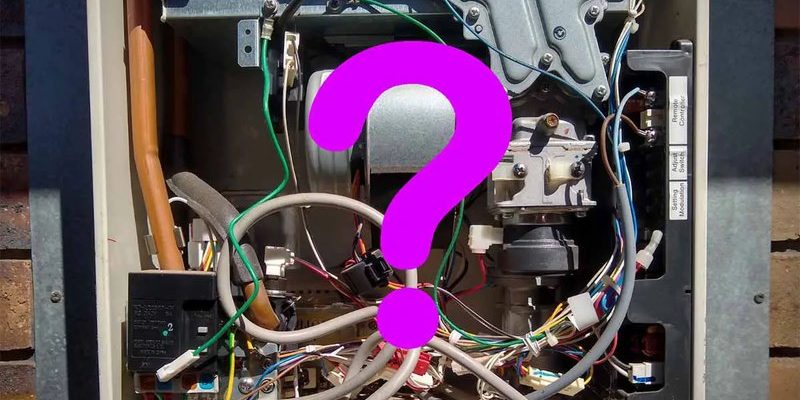
Understanding what causes this error code might seem daunting at first, but let’s break it down together. When your Bosch water heater flashes ‘Le’, it’s essentially trying to tell you something important — like a car’s dashboard light signaling an issue. This isn’t just a random occurrence; it’s a built-in safety feature designed to prevent potential damage that could result from ignoring the issue. So, let’s delve deeper, and I’ll walk you through the common reasons why this error code might appear.
Understanding the Error Code ‘Le’
When you see the error code ‘Le’ on your Bosch water heater, it’s all about detecting potential leaks. Just like a smoke detector is crucial in signaling smoke presence in your home, the ‘Le’ code flags issues related to water leaks. This could be due to internal leaks in the system or external ones, which could lead to bigger problems if not addressed promptly.
The Bosch water heater is engineered to be sensitive to such issues. Think about it as having a security system that constantly monitors for leaks, which helps prevent flooding or water damage in your home. It’s a smart way to protect your investment, but it can be a bit annoying when you’re unsure what’s causing the alert. However, this error is your water heater’s way of asking for some well-needed attention.
This error isn’t limited to a single cause. It can be due to a variety of reasons, from something as simple as condensation to more complex issues like a damaged heat exchanger. The key is to identify the source promptly — much like finding the origin of a mysterious sound in your car — so you can get back to enjoying those relaxing hot showers.
Common Causes of the ‘Le’ Error Code
One of the most frequent culprits behind this error is **condensation**. During cold months, you’ll often find that your Bosch water heater can accumulate condensation. This happens when the warm air inside the heater meets the cold surfaces, much like how your glasses fog up when you step inside after being out in the cold. This moisture can trip the sensors, causing a false leak detection.
Another common cause is a **faulty water inlet valve**. Imagine trying to fill a bucket with water from a faucet that’s partially blocked — it’s inefficient and frustrating, right? A malfunctioning inlet valve can lead to inadequate water supply, which the system might incorrectly interpret as a leak. Regular maintenance and checks can help prevent this issue before it triggers the error code.
Lastly, it could be an issue with the **heat exchanger**. Consider this the heart of your water heater; if it’s damaged or worn out, it can leak water internally. This is a bit more serious and will often require professional attention to fix. Just like you’d consult a doctor for heart problems, you’ll need an expert to tackle this one.
Next Steps and Solutions
So, how do you tackle this issue? First off, don’t panic. Start by checking for any visible leaks around your water heater. If you spot condensation, it’s often nothing to worry about. You can wipe it down and monitor it for changes. Should the ‘Le’ error persist, examining the water inlet valve would be your next step. Ensure it’s not blocked and is functioning correctly.
If these basic checks don’t resolve the issue, it might be time to call in a professional, especially if you suspect damage to the heat exchanger. While DIY fixes are great, remember that some issues are better left to the experts. They have the tools and know-how to diagnose and fix the problem without causing further damage.
To prevent the dreaded ‘Le’ error in the future, consider scheduling regular maintenance checks. Just like regular check-ups keep us healthy, these checks will keep your water heater running smoothly. They help catch potential problems early, saving you from unexpected cold showers and costly repairs down the line.
In conclusion, while the ‘Le’ error code might be an unwelcome surprise, understanding its causes and knowing how to address them can make it a manageable hiccup rather than a full-blown crisis. With a bit of vigilance and care, you can keep your Bosch water heater in top condition and enjoy the warm comforts it provides daily.
